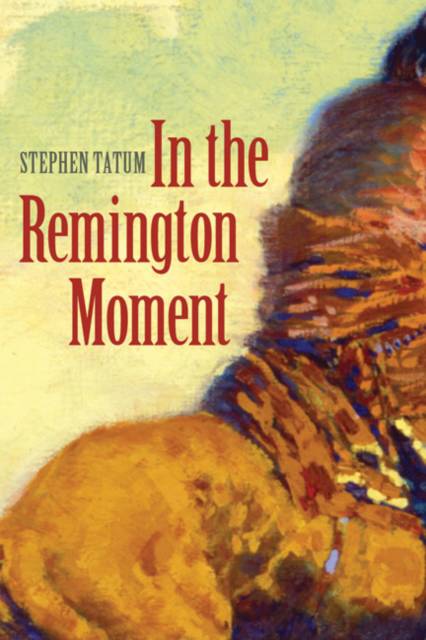
Bedankt voor het vertrouwen het afgelopen jaar! Om jou te bedanken bieden we GRATIS verzending (in België) aan op alles gedurende de hele maand januari.
- Afhalen na 1 uur in een winkel met voorraad
- In januari gratis thuislevering in België
- Ruim aanbod met 7 miljoen producten
Bedankt voor het vertrouwen het afgelopen jaar! Om jou te bedanken bieden we GRATIS verzending (in België) aan op alles gedurende de hele maand januari.
- Afhalen na 1 uur in een winkel met voorraad
- In januari gratis thuislevering in België
- Ruim aanbod met 7 miljoen producten
Zoeken
Omschrijving
For most people, the work of Frederic Remington conjures an antiquarian world of all things "western." Why this is so, and whether it should be so, are two of the critical questions raised in this book. Stephen Tatum closely considers selected paintings from Remington's last four years of life--his so-called years of critical acclaim. Tatum's purpose is twofold: first, to understand these paintings, both formally and thematically, within their historical, aesthetic, and biographical contexts; and second, to account for what endows them today--after marking the centennial of Remington's death in 1909--with continuing aesthetic and cultural significance. To this end, Tatum examines these late paintings in relation to Remington's other works, his letters and published writings, his evolving critical reception, and the writing and artwork of other cultural figures of the era, such as historian Frederick Jackson Turner and sociologist Georg Simmel. The book provides an illuminating glimpse of how and why particular Remington works might seize a viewer's attention in his or her past or present moment of reception--how in fact their unstable visual complexity can ultimately absorb their viewer. In his "Coda," Tatum offers a personal memoir of his own encounter with Remington's The Love Call, a critical meditation enacting and questioning the "Remington Moment."
Specificaties
Betrokkenen
- Auteur(s):
- Uitgeverij:
Inhoud
- Aantal bladzijden:
- 280
- Taal:
- Engels
Eigenschappen
- Productcode (EAN):
- 9780803225282
- Verschijningsdatum:
- 1/06/2010
- Uitvoering:
- Hardcover
- Formaat:
- Genaaid
- Afmetingen:
- 152 mm x 229 mm
- Gewicht:
- 566 g

Alleen bij Standaard Boekhandel
+ 167 punten op je klantenkaart van Standaard Boekhandel
Beoordelingen
We publiceren alleen reviews die voldoen aan de voorwaarden voor reviews. Bekijk onze voorwaarden voor reviews.









